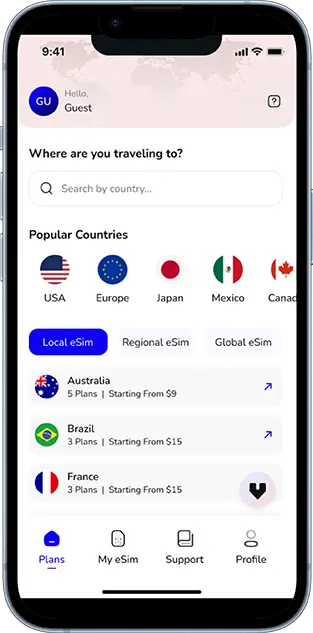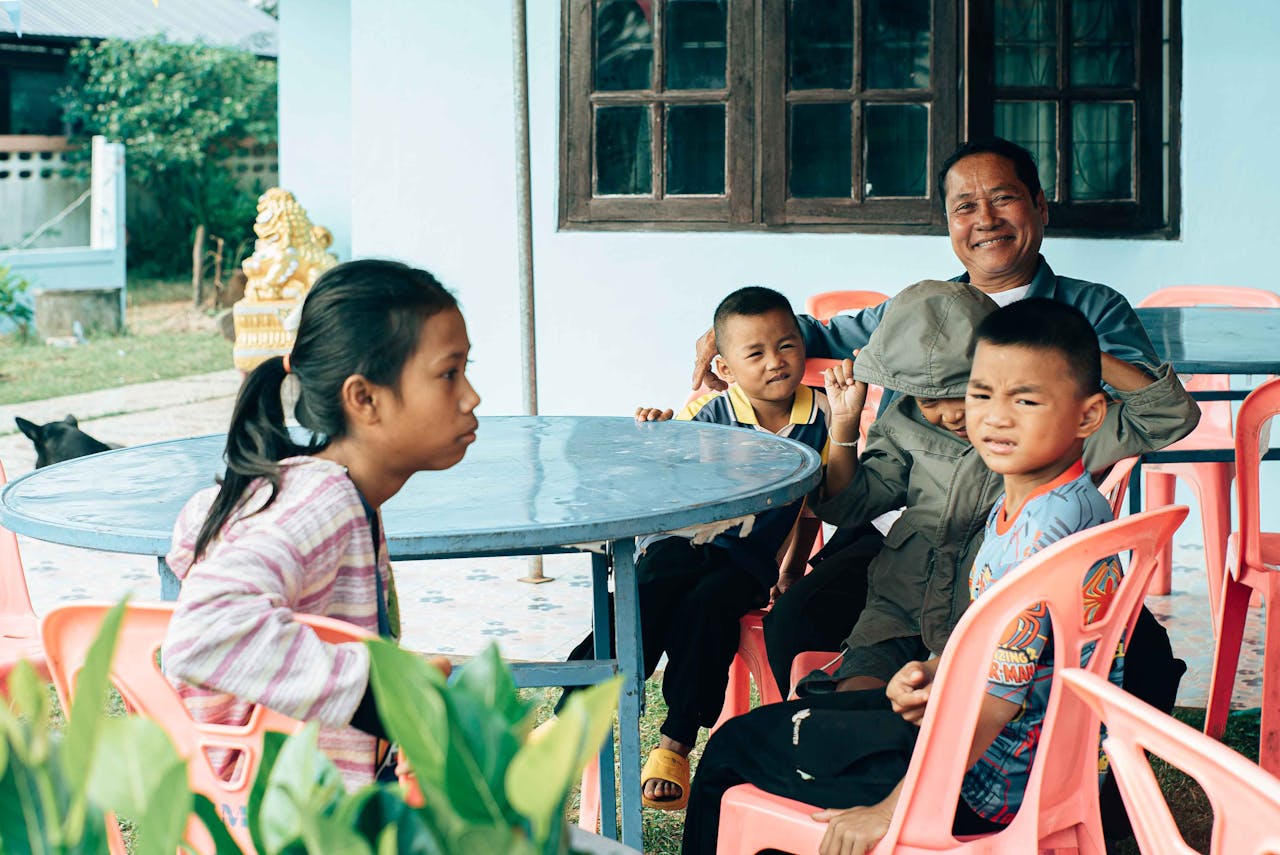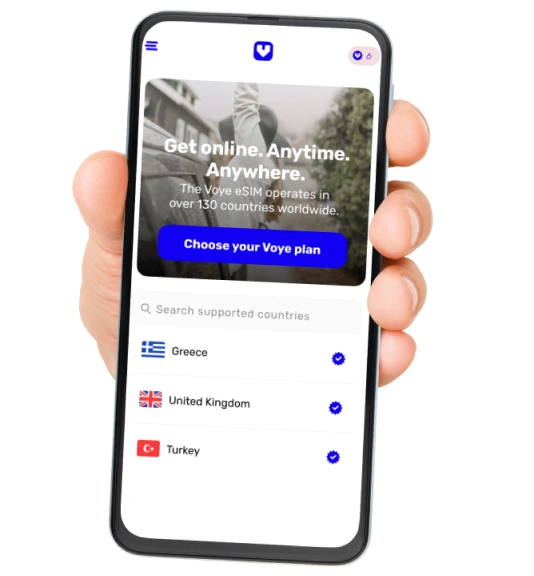Note that iPhone devices from Mainland China aren’t eSIM compatible. Also iPhone devices from Hong Kong and Macao aren’t compatible (except for iPhone 13 Mini, iPhone 12 Mini, iPhone SE 2020 and iPhone XS)
Planning a trip to Thailand? Learning a few Thai phrases can make your journey smoother and more enjoyable. While many locals speak English, using their language shows respect and creates a friendlier connection. Don’t worry, you don’t need to master the whole language—just some basics to help you get around, order food, and have polite conversations. Ready to dive in? Let’s explore some must-know Thai phrases for travelers.
Mastering Basic Thai Greetings
How to Say Hello and Goodbye
In Thai, greetings are simple yet meaningful. The word for both “hello” and “goodbye” is “sawasdee” (สวัสดี). However, the way you say it depends on your gender:
- For men: Sawasdee khap (สวัสดีครับ)
- For women: Sawasdee ka (สวัสดีค่ะ)
This small addition of “khap” or “ka” adds politeness to your speech and is a must for showing respect.
Adding Politeness with ‘Ka’ and ‘Khap’
Thai culture places a strong emphasis on politeness. That’s where “ka” (for women) and “khap” (for men) come in. These words don’t have a direct translation but serve as polite particles added to the end of sentences. For example:
- “Thank you”: Khop khun khap (for men) / Khop khun ka (for women)
- “Yes”: Chai khap / Chai ka
Using these particles not only makes your speech more polite but also shows you’re making an effort to respect Thai customs.
Using the Traditional Thai ‘Wai’ Greeting
The ‘wai’ is a gesture of respect and a key part of Thai greetings. To perform the ‘wai’:
- Press your palms together in a prayer-like position near your chest.
- Slightly bow your head.
- Smile warmly to complete the gesture.
The ‘wai’ is often used when saying “sawasdee” to someone, especially elders or those in respected positions. While tourists aren’t expected to initiate the ‘wai’, returning the gesture when greeted is a lovely way to show appreciation for Thai culture.
Tip: When in doubt, follow the lead of the locals. If someone greets you with a ‘wai’, it’s polite to return it.
Essential Thai Phrases for Everyday Use

Common Words for Polite Conversation
When you’re in Thailand, even a few polite words can go a long way in making interactions smoother. Here’s a quick list of useful phrases to keep handy:
- Sawadee khrup/ka – Hello (add khrup if you’re male, ka if you’re female for politeness)
- Khop khun khrup/ka – Thank you
- Mai pen rai – No worries/It’s okay
- Kor-tot khrup/ka – Excuse me/Sorry
- Mai khao jai – I don’t understand
Adding “khrup” or “ka” at the end of your sentences is a subtle but important way to show respect and politeness.
Phrases for Asking Directions
Getting lost is part of the adventure, but knowing how to ask for directions can save time. Here are some phrases to help:
- Hong nam yoo tee nai khrup/ka? – Where is the bathroom?
- Leu sai – Turn left
- Leu kwaa – Turn right
- Dtrong bpai – Go straight
- Yoot – Stop
Combine these with gestures, and you’ll usually get the help you need.
Expressing Gratitude and Apologies
Thais value politeness, and showing gratitude or apologizing can leave a great impression. Here are some key phrases:
- Khop khun khrup/ka – Thank you (again, don’t forget to add khrup or ka)
- Kor-tot khrup/ka – I’m sorry/Excuse me
- Mai pen rai – It’s okay/No problem
Learning these phrases not only helps you communicate but also shows respect for Thai culture and people.
Share Your Newly Learned Thai with the World!
Stay online abroad with instant activation.
A little effort in learning these will make your trip more enjoyable and interactions more meaningful. Plus, locals will often appreciate your attempts to speak their language!
Navigating Thai Markets and Shops
How to Ask for Prices and Discounts
Shopping in Thai markets can be a fun experience if you know a few key phrases. To ask “How much is this?” say “An-nee tao rai?” (rah-kah tao rye). If you feel the price is too high, politely ask for a discount by saying “Lot noy dai mai?” (lot noy die my). Bargaining is part of the culture, so don’t hesitate—but always do it with a smile!
Here’s a quick table to help:
| Phrase | Thai Script | Pronunciation |
| How much is this? | ราคาเท่าไหร่ | rah-kah tao rye |
| Can you discount it? | ลดหน่อยได้ไหม | lot noy die my |
| I’ll take it | เอาอันนี้ | ow an nee |
Phrases for Expressing Preferences
When browsing, you might want to express your likes or dislikes. Use “Chawp” (chop) for “I like it” or “Mai chawp” (my chop) for “I don’t like it.” If you’re looking for something specific, try “Mee see eun mai?” (me see oon my), which means “Do you have it in a different color?”
A few handy phrases:
- “Ao a nee” (ow a nee) – I want this.
- “Mai ao” (my ow) – I don’t want it.
- “Phaeng” (peng) – Expensive.
Understanding Numbers and Colors
Knowing numbers and colors in Thai can make your shopping smoother. Here’s a quick refresher:
- Numbers: 1 (neung), 2 (song), 3 (saam), 10 (sip).
- Colors: Red (si daeng), Blue (si faa), Green (si kiao).
If you’re asking for a specific color or size, combine it with “Mee mai?” For example, “Mee si kiao mai?” (me see kiao my) means “Do you have it in green?”
Shopping in Thailand is not just about buying—it’s about connecting with locals and enjoying the vibrant market culture.
Dining Out: Thai Phrases for Food Lovers
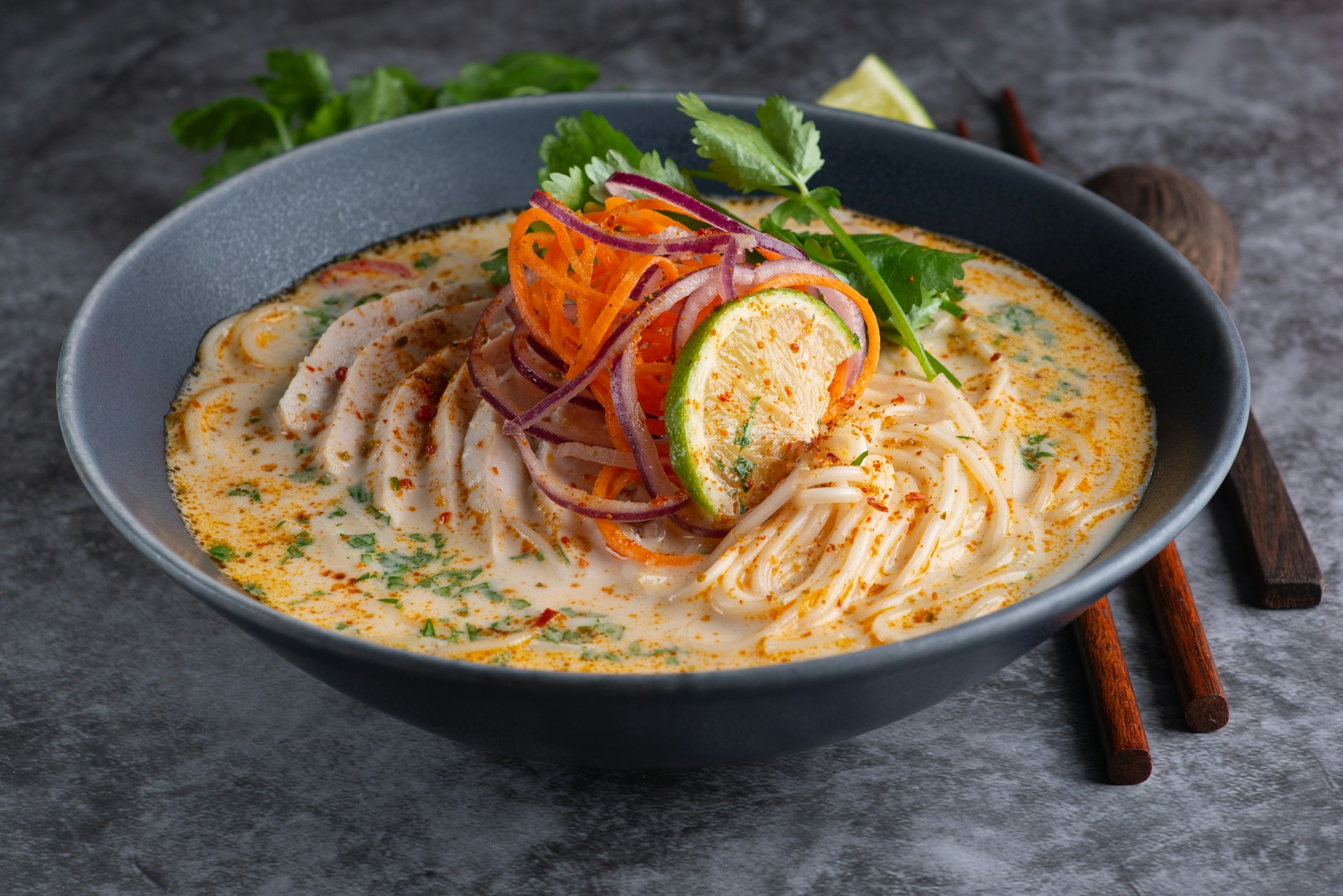
Ordering Food and Drinks
When you’re ready to order, knowing a few key phrases can make the experience smoother and more enjoyable. Here are some useful expressions when trying out Thai Dishes:
- Ao nii, ka/khap – I’ll take this, please.
- Gin pet mai dai – I cannot eat spicy food.
- Kaw nam pow noi – Can I have some water?
- Check bin/Kep tang – Can I have the bill?
If you’re vegetarian, you can say:
- Phom kin jeh (for men) or Dichan kin jeh (for women) – I’m vegetarian.
Communicating Dietary Restrictions
Thailand offers a variety of dishes, but it’s important to communicate your dietary needs clearly. Here are some phrases to help:
- Mai sai nam pla – No fish sauce.
- Mai sai prik – No chili.
- Mai sai gluu-a – No salt.
These phrases are particularly helpful if you have allergies or specific preferences. Don’t hesitate to repeat them to ensure your needs are understood.
Complimenting the Chef
Thai people appreciate when you enjoy their food. Compliments go a long way in creating a positive connection. Try these:
- Aroi mak – Very delicious!
- Som tam nii aroi mak – This papaya salad is very delicious.
- Khob khun mak na, ka/khap – Thank you very much.
Showing gratitude for a meal not only makes the chef smile but also enhances your dining experience. A little effort in speaking Thai can leave a lasting impression.
For more on must-try dishes and Thai cuisine, explore Thailand’s rich culture through its diverse cuisine.
Travel and Transportation Vocabulary
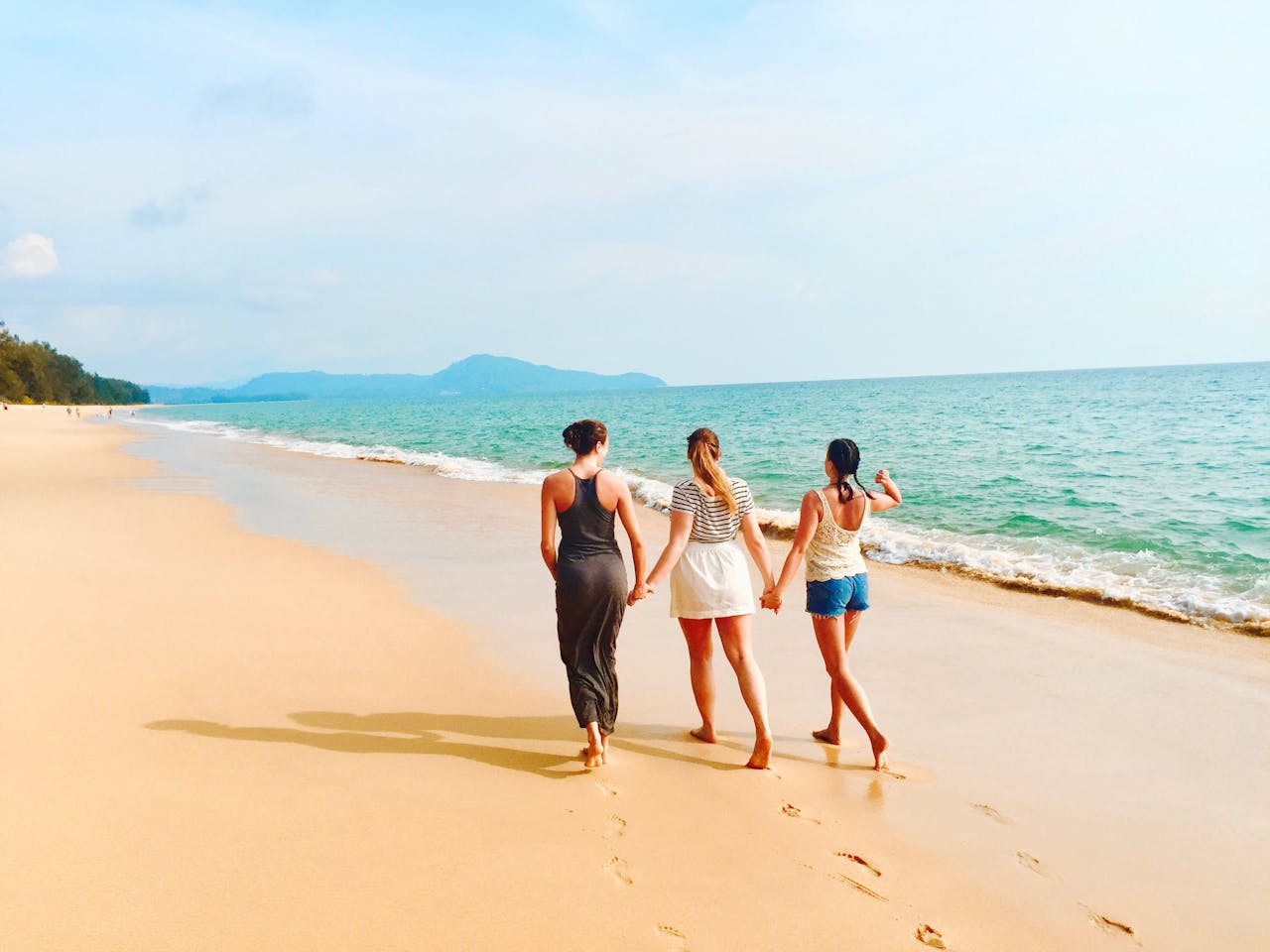
Getting Around with Basic Directions
When you’re in Thailand, knowing how to navigate is key. Here are some handy phrases to help you get around:
- “Trong pai” – Go straight
- “Leua sai” / “Leua kwaa” – Turn left / Turn right
- “Yoot tee nee” – Stop here, please
If you’re lost, asking for directions is simple: “Nai bai duay?” means “Where is the bus station?” Swap out “bus station” for the place you need, like “market” (tuh-lat) or “hotel” (rohng-raem).
Phrases for Taxis and Public Transport
Taxis and tuk-tuks are everywhere, but it’s good to confirm a few things:
- “Chai meeta mai?” – Do you use a meter? (Always check!)
- “Khap chaa chaa noi” – Please slow down
- “Dai mai ow chan dtang [destination]?” – Can you take me to [destination]?
For buses and trains, “Meua-rai?” asks “How far is it?” or “When does it arrive?” Super useful for schedules.
Asking About Schedules and Stops
Understanding timing and stops can be tricky. Use these phrases to make it easier:
- “Rot fai” – Train
- “Rot may” – Bus
- “Lot dai tao rai?” – How much is the taxi?
Pro tip: Keep a small notebook or use a picture dictionary with key Thai words to avoid miscommunication. It’s a lifesaver when you’re stuck.
Lost in Translation? Stay Confident with Fast & Accurate Translations!
Experience hassle-free connectivity wherever you go.
Knowing just a few of these phrases can make your travels stress-free and even a little fun. Plus, locals appreciate the effort!
Socializing and Making Friends in Thai
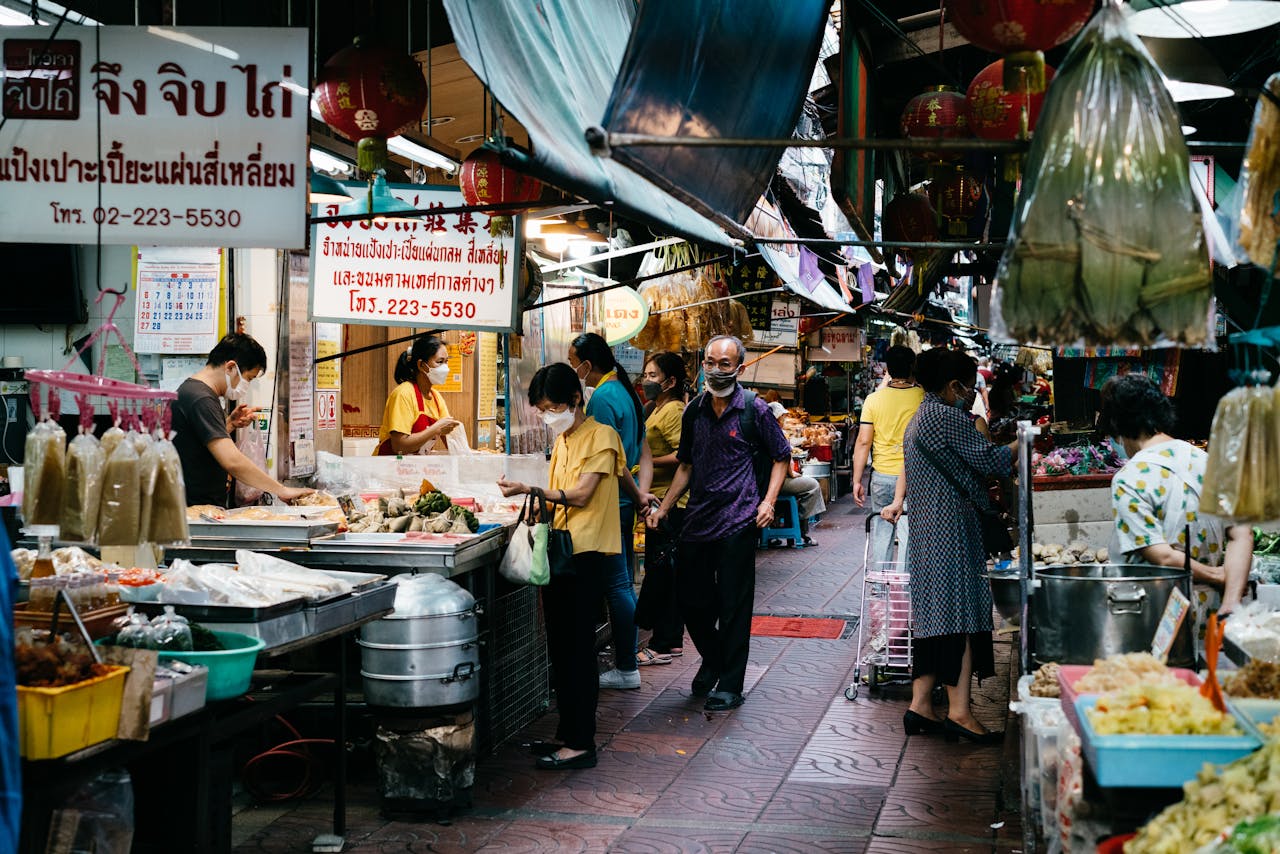
Introducing Yourself and Others
Starting a conversation in Thai can be a delightful way to connect with locals or fellow travelers, especially when you are traveling solo in Thailand. Here are some phrases to get you started:
- What is your name? – Khun cheu arai?
- My name is… – Phom cheu… (for men) or Dichan cheu… (for women)
- Nice to meet you – Yindee thii dai ruujak
If you’re introducing someone else, you can say:
- This is my friend. – Nee phuean khong phom/dichan
Adding a smile while speaking these phrases can make your introduction feel warmer and more genuine.
Compliments and Friendly Expressions
Thai people appreciate compliments, especially when they’re genuine. Here are some phrases you can use to make someone’s day:
- You are cute. – Khun naa rak
- You’re very kind. – Khun jai dee mak
- I like your… (e.g., shirt, bag) – Phom/dichan chob…
Use these sparingly and sincerely to avoid coming across as insincere. Thai culture values modesty, so keep it light and friendly.
Phrases for Casual Conversations
Once the introductions are out of the way, keep the conversation going with these casual phrases:
- How are you? – Sabai dee mai?
- I’m fine, thank you. – Sabai dee, khop khun
- Are you having fun? – Sanuk mai?
- It’s fun! – Sanuk dee
If you’re planning to meet up again, you might say:
- See you later! – Jer gan mai
Learning these phrases not only helps you connect but also shows respect for Thai culture. Even if your pronunciation isn’t perfect, locals will often appreciate your effort and respond warmly.
For a deeper dive into language and culture, consider joining Bangkok’s language experience. It’s a great way to practice Thai, meet new friends, and enjoy some fun activities!
Handling Emergencies and Medical Needs
Describing Symptoms and Asking for Help
When you’re not feeling well or facing an emergency, being able to describe your symptoms in Thai can be a lifesaver. Here are a few phrases that might help:
- I don’t feel well: Chan mai sabai (ฉันไม่สบาย)
- It hurts: Jep (เจ็บ)
- I need a doctor: Chan tong kaan mor (ฉันต้องการหมอ)
- Call an ambulance: Khor ro tao ror sa-mong-kol (ขอรถพยาบาล)
If you’re in a crowded area and need immediate help, don’t hesitate to shout “Chuay!” (ช่วย), which means “Help!” in Thai.
Contacting Authorities or Emergency Services
Knowing the right numbers to call can save precious time during an emergency. Here’s a quick table for essential contacts:
| Service | Thai Name | Phone Number |
| Tourist Police | Pholisee Tiew Tiao | 1155 |
| General Emergency | Chuk Chuen Chuk Chon | 191 |
| Ambulance | Ror Sa-mong-kol | 1669 |
Keep these numbers saved in your phone or written down somewhere easily accessible.
Key Words for Pharmacies and Hospitals
If you need medication or medical attention, these phrases will come in handy:
- Where is the nearest pharmacy?: Ran kai ya tee glai tee soot yoo tee nai? (ร้านขายยาที่ใกล้ที่สุดอยู่ที่ไหน?)
- Hospital: Rong paya baan (โรงพยาบาล)
- Medicine: Ya (ยา)
- Do you have medicine for [symptom]?: Mee ya samrab [symptom] mai? (มียาสำหรับ [อาการ] ไหม?)
Being prepared can make all the difference. Take a moment to familiarize yourself with these phrases before your trip—you never know when you might need them. And with a Thailand eSIM, you’ll have instant access to translation apps, maps, and travel guides wherever you go!
Wrapping It Up
Learning a few Thai phrases before your trip can make a world of difference. It’s not just about getting by—it’s about showing respect, making connections, and having a richer experience. Whether you’re ordering food, asking for directions, or just saying hello, these small efforts can lead to big smiles and warm interactions. So, grab a phrasebook, practice a little, and get ready to enjoy Thailand in a whole new way. Safe travels and, as they say in Thai, “Chok dee!” (Good luck!)
Seamless Mobile Data Everywhere
